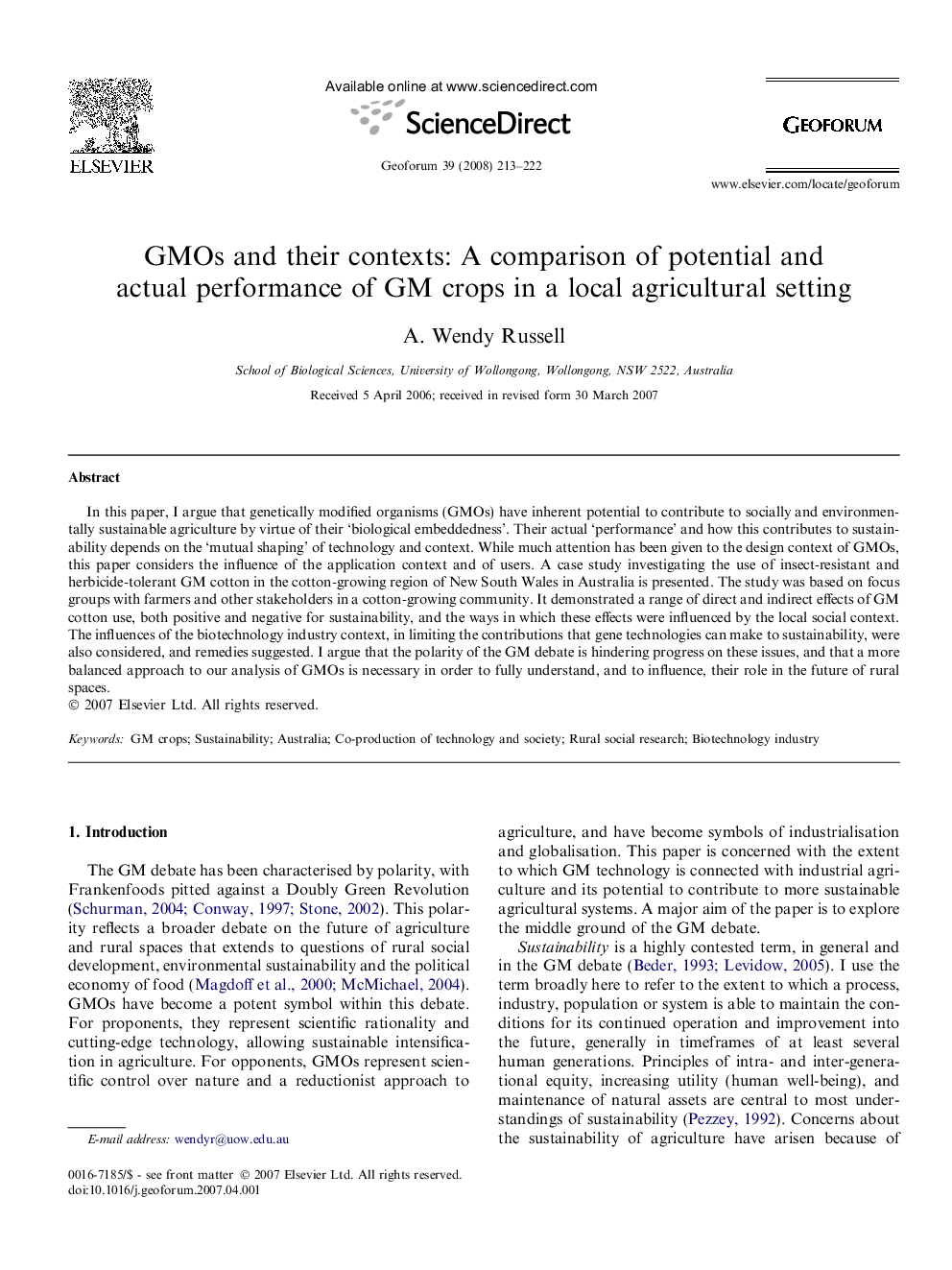| Article ID | Journal | Published Year | Pages | File Type |
|---|---|---|---|---|
| 5074973 | Geoforum | 2008 | 10 Pages |
In this paper, I argue that genetically modified organisms (GMOs) have inherent potential to contribute to socially and environmentally sustainable agriculture by virtue of their 'biological embeddedness'. Their actual 'performance' and how this contributes to sustainability depends on the 'mutual shaping' of technology and context. While much attention has been given to the design context of GMOs, this paper considers the influence of the application context and of users. A case study investigating the use of insect-resistant and herbicide-tolerant GM cotton in the cotton-growing region of New South Wales in Australia is presented. The study was based on focus groups with farmers and other stakeholders in a cotton-growing community. It demonstrated a range of direct and indirect effects of GM cotton use, both positive and negative for sustainability, and the ways in which these effects were influenced by the local social context. The influences of the biotechnology industry context, in limiting the contributions that gene technologies can make to sustainability, were also considered, and remedies suggested. I argue that the polarity of the GM debate is hindering progress on these issues, and that a more balanced approach to our analysis of GMOs is necessary in order to fully understand, and to influence, their role in the future of rural spaces.
